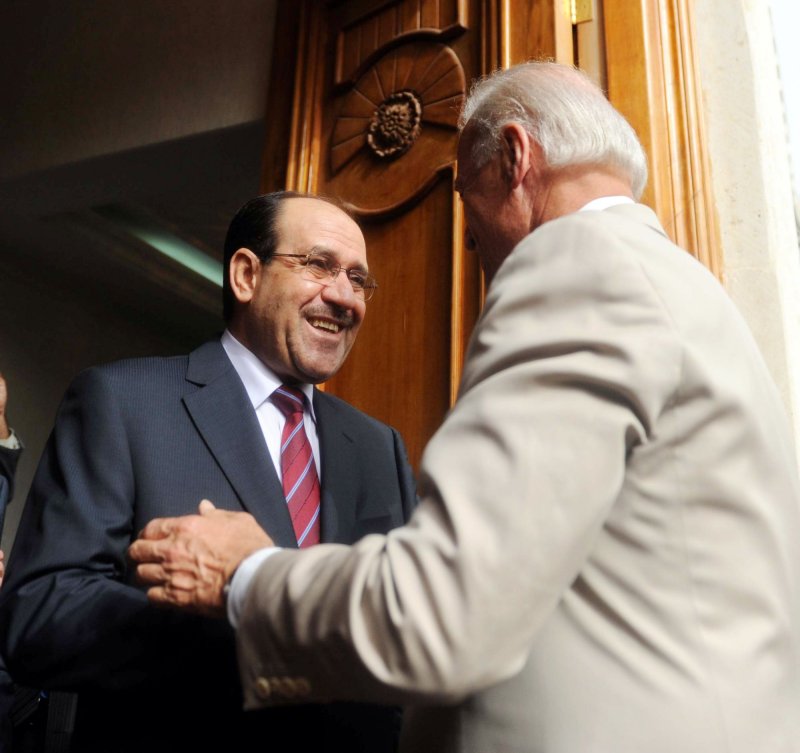U.S. Vice President Joe Biden (R) shakes hands with Iraq's Prime Minister Nuri al-Maliki in Baghdad on July 4, 2010. UPI |
License Photo
BAGHDAD, Oct. 1 (UPI) -- Iraqi Shiite cleric Moqtada Sadr agreed to back Nouri al-Maliki for a second term in office in exchange for certain concessions, sources said.
Sadr emerged as a political powerhouse from his self-imposed exile in Iran where the fiery cleric is believed to be pursuing his religious studies. Lawmakers loyal to the cleric took roughly 10 percent of the March 7 vote.
Sources in the National Iraqi Alliance told London's pan-Arab daily Asharq al-Awsat that Sadr bowed to pressure from Iran and backed Maliki for a second term "in return for guarantees."
Iran, the source said, "played a major role" in persuading Maliki's opponents to change course and back the incumbent prime minister.
Iyad Allawi, Maliki's opponent, said he gained assurances from political leaders in Damascus that Iraqi politics were free from outside intervention.
Sadr earlier this year expressed his support for Allawi, who led his secular Iraqiya slate to a narrow victory in the parliamentary elections. The cleric fell out of favor with Maliki after a 2008 offensive launched by the prime minister in southern Iraq in an effort to wrest control away from Sadr supporters.
A move closer to Maliki would put the prime minister and his political allies just a few seats shy of the 163 majority needed to form a new government.
Baghdad earned the distinction Friday, meanwhile, of breaking the record for the longest lapse between parliamentary elections and the forming of a new government at 208 days. The Netherlands went 207 days in 1977.





